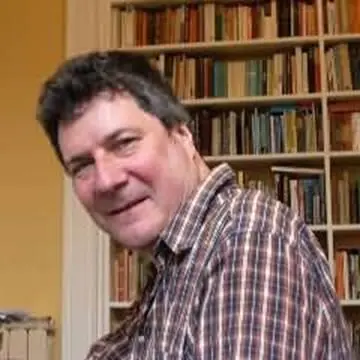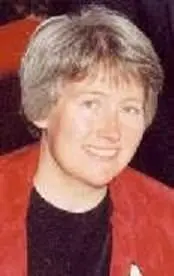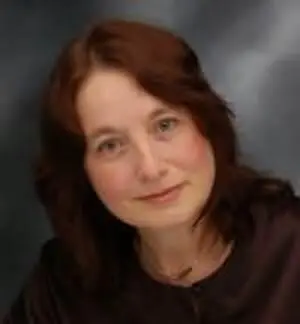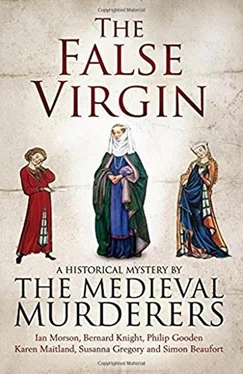Michael Deverill liked Boris Malenkov, certainly by contrast to Vladimir Zarubin, for example. Malenkov was not intimidating. Indeed, there was something almost benevolent about the podgy man.
‘I can’t offer you any money,’ said Boris. ‘I have cash-flow crisis. Next month maybe…’
Next month was too late. The next day would be too late. Somehow Deverill wasn’t surprised by any of this. He said: ‘But you do want those things of Beornwyn, don’t you?’
If Boris noticed such an off-hand way of referring to the relics, he didn’t mention it. Instead he said: ‘I am ready to do exchange, though.’
‘Exchange, Mr Malenkov?’
‘The Madonna on desk, the one you are admiring. By Lorenzo Gelli.’
‘The Lorenzo Gelli,’ said Deverill, taking care to pronounce the name correctly ( Jelly ). ‘Well, it is a fine piece of work.’
‘A far exchange, as you say.’
‘Yes,’ said Deverill. He didn’t bother to correct Boris’s mistake over a ‘far’ exchange. He glanced at his watch. He had to finish the business with Boris and return to his father. They had to catch that Gatwick flight in the early evening. More worrying, much more worrying than any to-do over relics and pictures, was the return of Vladimir Zarubin from the Ukraine. Through Michael Deverill’s mind there flashed the image of burly brutes picking their way through the flat in Wimbledon, looking for evidence of fakery and fraud. No, not picking their way through, but smashing things up. Not just things either. Yes, yes, take the painting. Get out of here. Get out of town. Get out of the country.
So it was concluded. Michael Deverill left the Eaton Square house with the Lorenzo Gelli unceremoniously wrapped in the same cloth in which he had carried the Beornwyn relics, inside the same plastic bag.
When Michael returned to the flat in Wimbledon, his father was cramming things into a last-minute case.
‘Well,’ he said. ‘Did our Boris go for them?’
‘Yes. But he had no money – no ready money, at any rate. I had to take this in lieu.’
‘Let’s see.’
When he saw the Gelli, Patrick Deverill let out a sound between a groan and a laugh.
‘One of mine,’ he said. ‘From the old days. This isn’t a genuine Gelli. No more than the woman in the picture was a real virgin.’
‘You’re sure?’
‘Of course I’m bloody sure, Michael. The model for the Madonna was your mother. Oh, but it’s nice to see her again.’
Michael wasn’t sure whether his father was referring to the Madonna or to his mother, who had been dead these many years. He said: ‘I thought her face looked familiar.’
‘And the baby is you. You were the model when I did it.’
‘Jesus,’ said Michael.
‘You could say,’ said his father. ‘Too late to return it to Boris now.’
‘Perhaps Vlad the Impaler will take it instead.’
‘That’s a joke, right? We are not staying to find out.’
Patrick Deverill dithered for an instant before stuffing the Lorenzo Gelli into the case. He did seem pleased to be reunited with the old fake. Minutes later, the taxi arrived to take father and son to Gatwick airport.
Meanwhile, back in Eaton Square, Boris Malenkov was casting his eyes over the collection of Beornwyn relics, picking up one, now another. He considered that he had got the better part of the bargain. That painting by Gelli he never really liked it. He had bought it in his early days in London through a dealer who later introduced him to the Deverills, father and son. But he had never believed in the Mother or Child in the picture, to him they looked false. There was something bourgeois about their features compared to his beloved icons, there was no real suffering or spirituality to them. So, obtaining the butterfly and the crystal was far exchange. Boris paused for a moment. A far exchange… was that the right expression? Anesha could have told him. And downstairs in reception Sonia Davies was preparing to leave the house in Eaton Square. It hadn’t been much of a day. Half the sudoku book finished. One visitor. That bloke, Michael Deverill was his name, he’d left in a hurry still carrying the Sainsbury’s bag he arrived with. Hardly paused to say goodbye to Sonia. Otherwise no callers. Not even Eric coming back. But he had sent her a text. Rather a naughty message, as it happened, combining food and sex. So now what she was looking forward to was a takeaway from that new Thai place round the corner, followed by a good session with Eric Butler. For a moment she wondered what the old man upstairs would make of that. A tiny part of her was concerned by Boris’s opinion. Then she shrugged. No virgin she.
A small group of historical mystery writers, all members of the Crime Writers’ Association, who promote their work by giving informal talks and discussions at libraries, bookshops and literary festivals.

Bernard Knightis a former Home Office pathologist and professor of forensic medicine who has been publishing novels, non-fiction, radio and television drama and documentaries for more than forty years. He currently writes the highly regarded Crowner John series of historical mysteries, based on the first coroner for Devon in the twelfth century; the fourteenth of which, A Plague of Heretics , has recently been published by Simon & Schuster.

Ian Morsonis the author of an acclaimed series of historical mysteries featuring the thirteenth-century Oxford-based detective, William Falconer, a series featuring medieval Venetian crime solver, Nick Zuliani, and many short stories set in various historical periods.

Philip Goodenis the author of the Nick Revill series, a sequence of historical mysteries set in Elizabethan and Jacobean London, during the time of Shakespeare’s Globe Theatre. The latest titles are Sleep of Death and Death of Kings. He also writes 19th century mysteries, most recently The Durham Disappearance, as well as non-fiction books on language . Philip was chairman of the Crime Writers’ Association in 2007-8.

Susanna Gregoryis the author of the Matthew Bartholomew series of mystery novels, set in fourteenth century Cambridge, the most recent of which are Murder by the Book and The Lost Abbot . In addition, she writes a series set in Restoration London, featuring Thomas Chaloner; the most recent book is Murder in St James’s Park. She also writes historical mysteries with her husband under the name of Simon Beaufort.

Karen Maitlandwrites stand-alone, dark medieval thrillers. She is the author of Company of Liars and The Owl Killers . Her most recent medieval thrillers are The Gallows Curse , a tale of treachery and sin under the brutal reign of English King John, and Falcons of Fire and Ice set in Portugal and Iceland amid the twin terrors of the Inquisition and Reformation.
Читать дальше

















